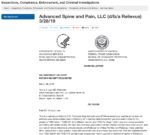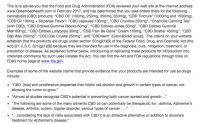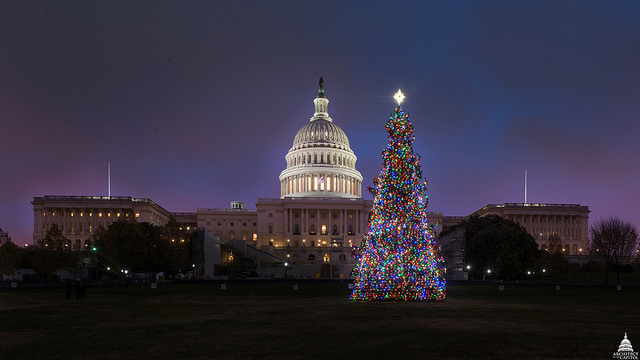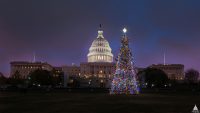The U.S. Food and Drug Administration (FDA) issued a warning letter to Curaleaf Inc., a multi-billion-dollar market cap company that is publicly traded on the Canadian Securities Exchange. The FDA determined, based upon a review of the company’s website and social media accounts (Facebook and Twitter), that several of Curaleaf’s cannabidiol (CBD) products are misbranded and unapproved new drugs sold are in violation of the Federal Food, Drug, and Cosmetic Act1 (FD&C Act). The FDA also determined that Curaleaf’s “Bido CBD for Pets” products are unapproved new animal drugs that are unsafe and adulterated under the FD&C Act2. This action by FDA holds many lessons and cautions for companies already in or looking to break into the CBD market.
Unapproved New Human Drug Claims and Misbranding
The FDA identified a variety of statements in its review of the Curaleaf website and social media accounts that it said established the CBD Lotion, CBD Pain-Relief Patch, CBD Tincture, and CBD Disposable Vape Pen products as drugs. It is important to highlight that these claims were not made on the products’ label and, in some instances, referred to CBD generally. The FDA characterized these claims as demonstrating an intent to market the products for use in the diagnosis, cure, mitigation, treatment or prevention of disease, as well as to affect the structure or any function of the body. For example, FDA asserted that Curaleaf made a variety of drug and disease-related claims that its products or CBD in general could be used:
- To treat chronic pain;
- To reduce the symptoms of ADHD, anxiety, depression, post-traumatic stress disorder, and schizophrenia;
- As a natural alternative to pharmaceutical-grade treatments for depression and anxiety;
- To address eating disorders;
- To reduce the severity of opioid-related withdrawal;
- To deter heart disease;
- As an effective treatment for Parkinson’s disease and Alzheimer’s; and
- To kill breast cancer cells and counteract the spread of cancer.
The FDA stated that the Curaleaf products are not generally recognized as safe and effective for the uses described on their website and social media accounts and, therefore, the products are new drugs under the FD&C Act3. The FDA stated that, because the products have not received approval from the FDA, they may not be legally introduced or delivered for introduction into interstate commerce.
 The FDA further declared that the Curaleaf products are misbranded within the meaning the FD&C Act, because their labeling fails to bear adequate directions under which a layperson can use a drug safely and for the purpose for which it is intended. The FDA will frequently add this charge when citing a product marketed as an unapproved new drug. In its warning letter, the FDA noted that Curaleaf’s products are offered for conditions that are not inclined to self-diagnosis and treatment by individuals who are not medical professionals (e.g. Parkinson’s, Alzheimer’s, etc.). Therefore, the products would need to bear adequate directions for use, as well as obtain appropriate new drug approvals from FDA prior to being marketed as human drugs.
The FDA further declared that the Curaleaf products are misbranded within the meaning the FD&C Act, because their labeling fails to bear adequate directions under which a layperson can use a drug safely and for the purpose for which it is intended. The FDA will frequently add this charge when citing a product marketed as an unapproved new drug. In its warning letter, the FDA noted that Curaleaf’s products are offered for conditions that are not inclined to self-diagnosis and treatment by individuals who are not medical professionals (e.g. Parkinson’s, Alzheimer’s, etc.). Therefore, the products would need to bear adequate directions for use, as well as obtain appropriate new drug approvals from FDA prior to being marketed as human drugs.
Unapproved Dietary Supplement Labeling
The FDA further concluded that Curaleaf intended to market their CBD products as dietary supplements. For example, under the disclaimer section of the Curaleaf products the FDA noted that it says that “Cannabidiol (CBD) . . . is a dietary supplement.” However, the warning letter reiterated the FDA’s longstanding position that CBD products do not meet the definition of a dietary supplement because they contain an active ingredient in a drug product that has been the subject of public research and drug approval by FDA. While the warning letter states that FDA is not aware of any evidence that counters the agency’s position that CBD products are excluded from the definition of dietary supplement, Curaleaf may present the FDA with any evidence that is relevant to the issue.
Further, the FDA noted that the Curaleaf products do not meet the definition of dietary supplement because those products are not “intended for digestion”. The CBD Lotion and the CBD Pain-Relief Patch products’ labeling states that they are intended to be applied directly to the skin and body, while the CBD Disposable Vape Pen is intended for inhalation. In addition, the CBD Tincture products contain a “Suggested Use” section on labeling that includes both edible and topical uses. According to the FDA, the addition of the topical use to labeling established that the tincture products are not intended for ingestion and therefore do not meet the definition of a dietary supplement.
Unapproved New Animal Drugs
 The FDA also concluded that Curaleaf’s “Bido CBD for Pets” products are unapproved new animal drugs as statements on Curaleaf’s website show that the products are intended for use in the mitigation, treatment or prevention of diseases in animals. For example, the company’s website states that its products will decrease dog separation anxiety, distressed feelings, anxiety and seizures, as well as reducing or stunting the growth of cancer, relieve muscle spasms and treat arthritis issues. The FDA stated that the products are “new animal drugs” because they are not generally recognized among experts qualified by scientific training and experience as safe and effective for use under the conditions prescribed, recommended or suggested in the labeling. In order to be legally marketed, a new animal drug must have an approved new animal drug application, conditionally approved new animal drug application, or index listing. As these products are not approved or index-listed by the FDA, these products are considered unsafe and adulterated.
The FDA also concluded that Curaleaf’s “Bido CBD for Pets” products are unapproved new animal drugs as statements on Curaleaf’s website show that the products are intended for use in the mitigation, treatment or prevention of diseases in animals. For example, the company’s website states that its products will decrease dog separation anxiety, distressed feelings, anxiety and seizures, as well as reducing or stunting the growth of cancer, relieve muscle spasms and treat arthritis issues. The FDA stated that the products are “new animal drugs” because they are not generally recognized among experts qualified by scientific training and experience as safe and effective for use under the conditions prescribed, recommended or suggested in the labeling. In order to be legally marketed, a new animal drug must have an approved new animal drug application, conditionally approved new animal drug application, or index listing. As these products are not approved or index-listed by the FDA, these products are considered unsafe and adulterated.
What This Means to You
The FDA is paying close attention to companies marketing CBD products with unapproved drug claims for both human use and animal use. It is important for companies that currently market or are considering marketing CBD products to ensure that their marketing materials and labeling generally comply with FDA requirements and avoid making unapproved human or animal drug claims. Additionally, it underscores the fact that FDA will review more than just the label of the product, and will scrutinize statements made about the product on the company’s website and social media accounts to determine the product’s intended use. Even though the FDA is in the process of determining how to regulate CBD products, the agency will not withhold enforcement actions against companies that make unapproved drug claims, particularly those that FDA believes will steer patients from receiving approved treatments.
The receipt of an FDA warning letter may also potentially result in class action lawsuits based on state consumer protection laws or lawsuits by competitors under the Lanham Act or state competition laws. While the FD&C Act does not include a private right of action, publicly issued warning letters may form the basis of a claim that statements are false and misleading and actionable under state or other federal laws.
References to the Federal Food, Drug, and Cosmetic Act (FD&C Act).
- Sections 502(f)(1), 505(a) and 301(d)
- Sections 501(a)(5) and 512(a)
- Section 201(p)





















